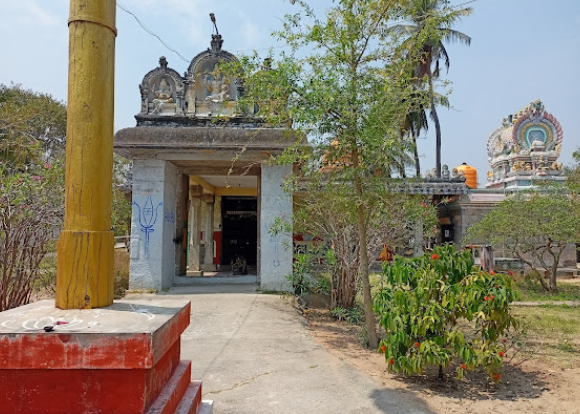Origin/History:
- The temple at Elemian Kottoor (Elimiyankottur) was originally constructed during the Pallava period.
- It was reconstructed by the Cholas, with significant contributions during Kulothunga II's reign, when the place was called Chozhavichchadira Chathurvedi Mangalam in Kanruru Nadu.
- An inscription from Rajadhiraja II's reign (1175 CE) records the reconstruction of the original brick temple into stone by Pandari Sivacharanaalayan alias Sivapadasekara Muvendavelan.
- During the Vijayanagara period, an inscription records the gift of the village Kaliyanallur in Tiruvelur Nadu to the temple.
- An inscription from the Pandya King Konerimaikondan Jadavarman Sundarapandyan’s reign records the gift of the village Ilambayankottur in Kanruru Nadu to the temple.
- An inscription from Thribhuvana Veeradevan's period mentions the place as Chathurvedimangalam Ilambayankottur in Kanruru Nadu.
Puranic Significance :-
